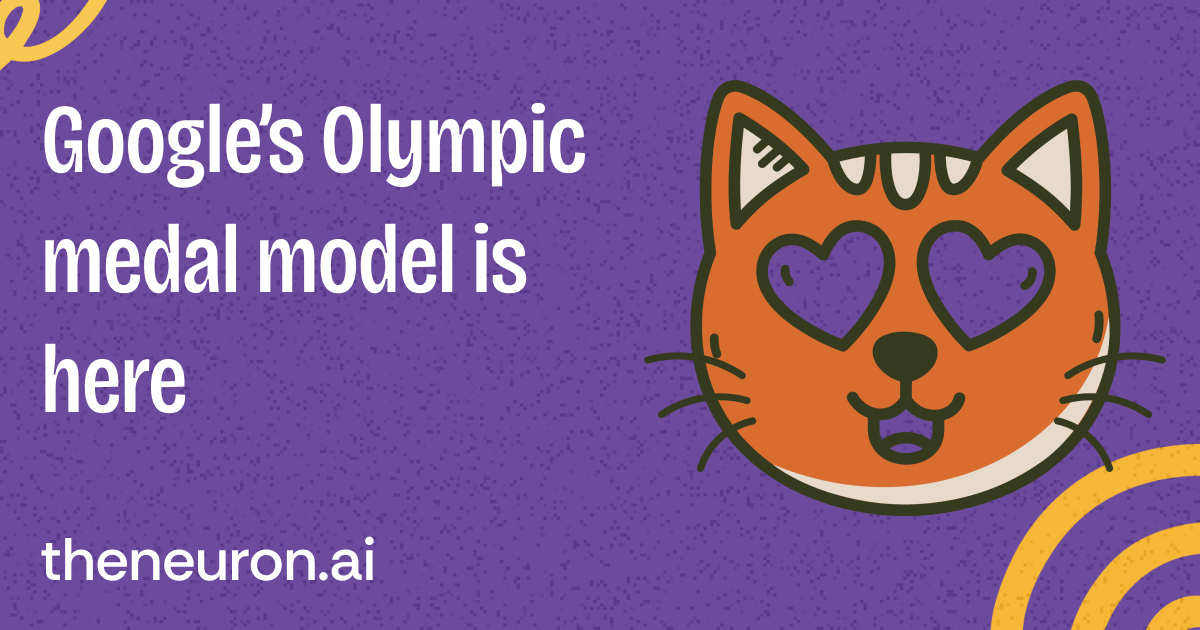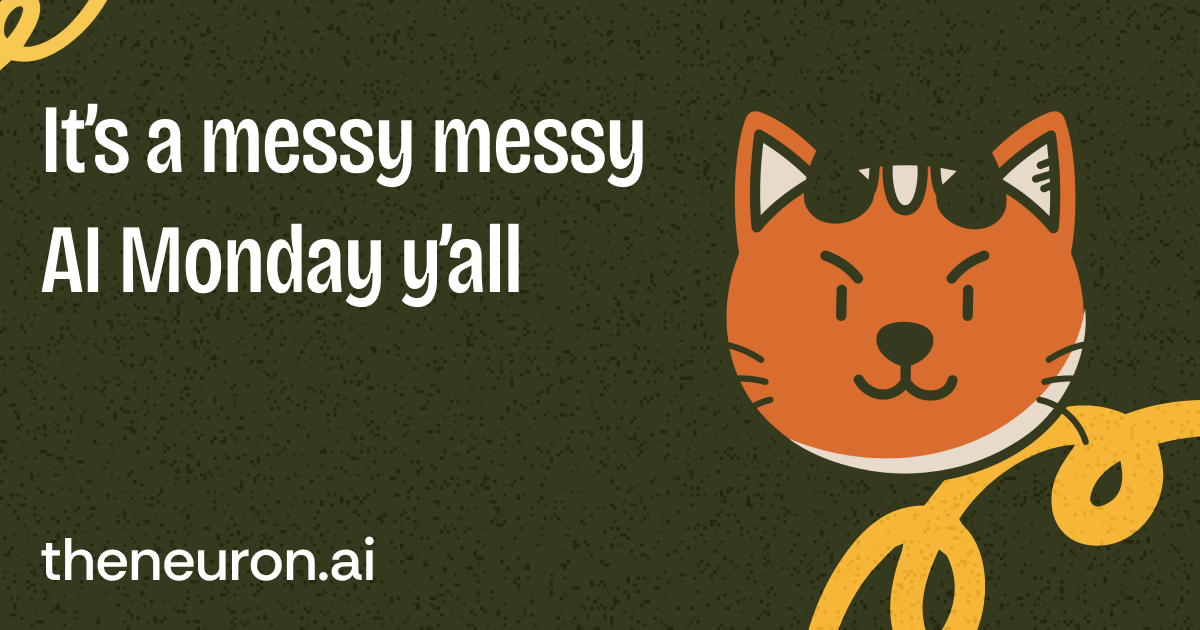Welcome, humans.
We all use AI tools daily, but have you ever wondered what's actually happening behind the scenes when developers build them?
Vercel just dropped their latest State of AI survey to find out how developers are really building AI products—what tools they're using, what's working (and what's not), and where the industry is headed next.
Last time around, they discovered some wild stuff: 88% of devs use OpenAI, but 65% switch providers every six months, and most teams are spending under $1K/month to build powerful AI systems. This time around, we’re betting Claude Code is gonna shine….
If you're a developer yourself, fill out their survey here. When you do, you’ll get access to the results yourself!
Now, for something light and bouncy… these security cam videos of animals on trampolines or rolling up on porches are going viral, and folks are legitimately shook by how real they look (and how hard it is to tell they’re fake). Check out this compilation:

Here’s what you need to know about AI today:
- Google released Deep Think math model for $250/month subscribers.
- OpenAI raised another $8B with revenue projected to hit $20B by year end.
- Anthropic cut off OpenAI’s access to its Claude models ahead of GPT-6.
- Apple acquired seven AI companies in 2025—and wants to “win” AI.

Google Released Deep Think, a Bronze-Medal level Math Olympiad.
The big news over the weekend was that Google just rolled out a variant of Deep Think in the Gemini app, which is based on the same AI model that recently earned a gold medal at this year's International Mathematical Olympiad (the Olympics of math for high schoolers).
The full version (not this one) can spend hours reasoning through complex problems, but the consumer release is much faster while still performing at a Bronze-level standard. Not too shabby!
Here’s how it works: Deep Think uses what Google calls “parallel thinking techniques”, essentially letting the AI explore multiple solution paths at once, revise ideas, and combine different approaches before settling on the best answer. Kinda like brainstorming with three different partners simultaneously, but all in your head!
Here's where Deep Think shines:
- Coding challenges: Excels at complex programming problems where you need to consider tradeoffs and time complexity.
- Web development: Can improve both the aesthetics and functionality of websites through iterative design.
- Scientific research: Helps formulate mathematical conjectures and reason through complex literature.
- Creative problem-solving: Tackles anything requiring step-by-step strategic planning.
What it’s NOT good at? According to physicist Sabine Hossenfelder, definitely not physics.
You can try Deep Think in the Gemini app if you're an AI Ultra subscriber, but it'll cost ya $250 a month.
Don’t forget to check out the model card: Google's own safety evaluations found that Deep Think might have reached a “critical capability level” for helping bad actors with dangerous biological, chemical, or nuclear information.
They're not saying it reached the threshold, but they're worried enough to deploy extra safety measures and usage monitoring.
Keep an eye out: ByteDance just revealed Seed-Prover, a Silver-medalist at the IMO, and whose code is available to look at for each problem. This is a more specialist approach versus Google’s generalist approach, but still interesting. OpenAI should also release its own Gold-medal math model at some point in the next few months… but THIS time around, Google beat THEM to the punch. Touché!

FROM OUR PARTNERS
Institutional-Grade Opportunities for HNW Investors
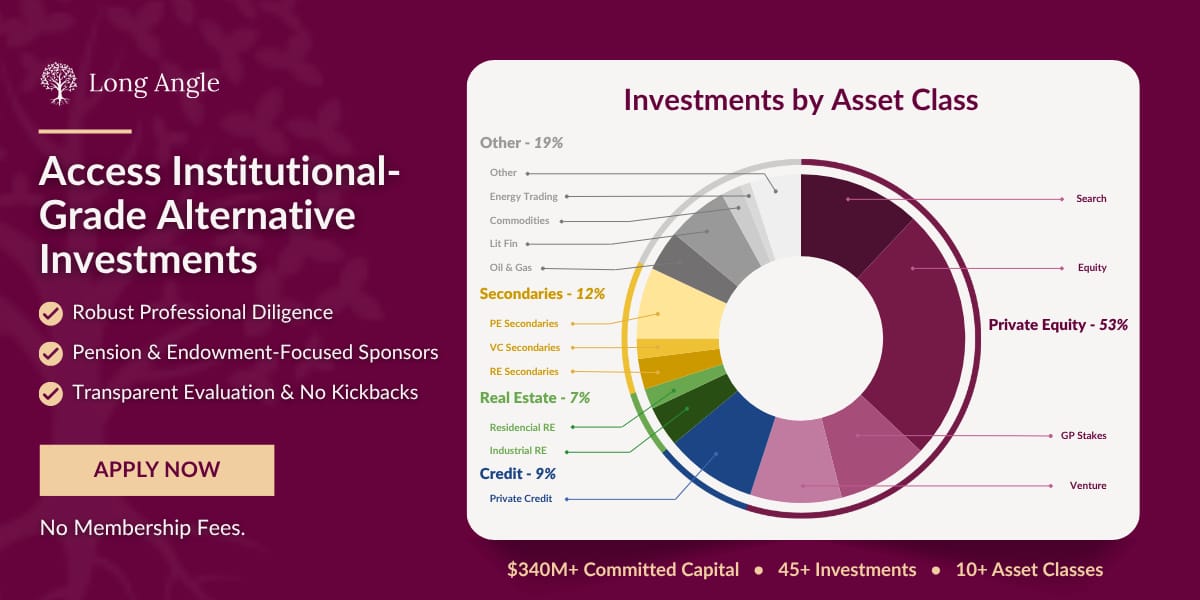
Long Angle is a private, vetted community connecting high-net-worth entrepreneurs and executives with institutional-grade alternative investments. No membership fees.
Access top-tier opportunities across private equity, credit, search funds, litigation finance, energy, hedge funds, and secondaries. Leverage collective expertise and scale for better terms.
Invest alongside pensions, endowments, and family offices. With $100M+ invested annually, secure preferential terms unavailable to individual investors.

Prompt Tip of the Day
Another day, another Anthropic prompting resource—this one is their new “prompting 101” video.
Anthropic's applied AI team share their step-by-step framework for building production-ready prompts, and it's way more systematic than most tutorials.
Their proven structure: Task description → Content → Detailed instructions → Examples → Important reminders. But the real magic is in the details:
- Use XML tags for organization (better than markdown because you can specify what's inside them).
- Put static background info in system prompt: form structures, unchanging context (perfect for prompt caching).
- Give step-by-step instructions specifying the exact order Claude should analyze information.
- Include examples of tricky cases where human judgment got it right (e.g., a form shows both drivers claiming right-of-way in a parking lot, but human experts know backing drivers must always yield).
- Set clear tone expectations: tell Claude to stay factual and only make assessments when confident.
- Add guidelines to prevent hallucinations: require Claude to cite what it saw when making claims (our version of this "directly quote the source so I can go back and Command F look it up to check your work").
- Use prefilled responses to start Claude's output with your desired format (start Claude's response with your desired opening - like "{" for JSON or an XML tag - so it continues in that exact format without preamble).
- Leverage extended thinking mode, then analyze those transcripts to improve your system prompt.
They went from Claude hallucinating skiing accidents to confident, structured outputs perfect for real insurance claims processing. The key insight? Don't let Claude guess: be extremely specific about context, order, and expectations.
Check out all of our Prompt Tips of the Day from July here.
P.S: Anthropic didn't just release the above video, they released 17 new videos that are worth skimming to see what's relevant for your career / interests! Check 'em out!

Treats To Try.
*Asterisk = from our partners. Advertise in The Neuron here.
- *Murf AI turns your text into human-like speech in 200+ voices, so you can narrate presentations or create audiobooks without recording anything yourself.
- FLUX.1 Krea generates photorealistic images from your text prompts without the typical "AI look" that makes generated images obvious—model here, ComfyUI docs here, Try it here
- Manus (AI agent) released Wide Research for Pro subscribers, which lets you research hundreds of items at once using multiple AI agents working together in parallel on cloud infrastructure.
- AlphaXiV launched Communities, which is like Discord, but for research papers.
- Mocha turns your descriptions into fully functional web apps in minutes—no coding required.
- Want to learn context engineering? Watch Tina Huang’s brilliant 12 minute explainer!
See our top 51 AI Tools for Business here!

Around the Horn.
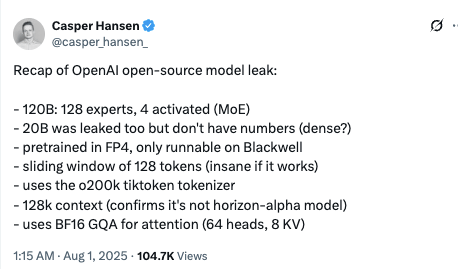
- OpenAI raised $8.3B at a $300B valuation, with current annualized revenue allegedly $12-$13B, and projected to hit $20B by year's end.
- Anthropic blocked OpenAI's API access to Claude models for violating terms against building competing products ahead of GPT-5's launch (which should be tomorrow, if the rumors are true).
- Shared ChatGPT conversations started appearing in Google search results, exposing over 4.5K chats containing personal data, but the feature has been removed.
- Apple announced a major AI investment increase, quietly acquired seven AI companies (“none huge in dollar amount”) in 2025, and just declared Apple must “win” in AI (better late than never I guess??)—oh, and they have a GPT competitor in the works, too.
- NVIDIA's research on “Small Language Models” argues they're poised to disrupt AI agents by matching performance for practical tasks while offering better economics, privacy, and edge deployment.
- Anthropic released research on “persona vectors” that allow researchers to mathematically control AI personalities by adding/subtracting vectors representing traits like malevolence or sycophancy, potentially improving AI safety.
- Researchers from Princeton, Tsinghua, and other schools published the first comprehensive survey of self-evolving agents, establishing a unified framework for AI systems that continuously adapt and improve toward Artificial Super Intelligence.
- Last week ALONE saw over $9.3B invested in AI startups, according to Feed the AI.
- Christopher Mims shared that AI infrastructure build-out contributed more to US economic growth in the past 6 months than all consumer spending, with the “Mag 7” spending $100B+ on data centers just last quarter.
- Matt Berman interviewed Nico from Shortcut (the AI-agent powered Excel killer) about his work at Fundamental Research Labs (who just raised $33M!).
- Microsoft analyzed 200K Bing Copilot conversations and found that knowledge workers like interpreters, translators, historians, and sales reps face the highest AI disruption potential, since information gathering and writing are the most common (and successful) AI-assisted work activities.

Monday Meme
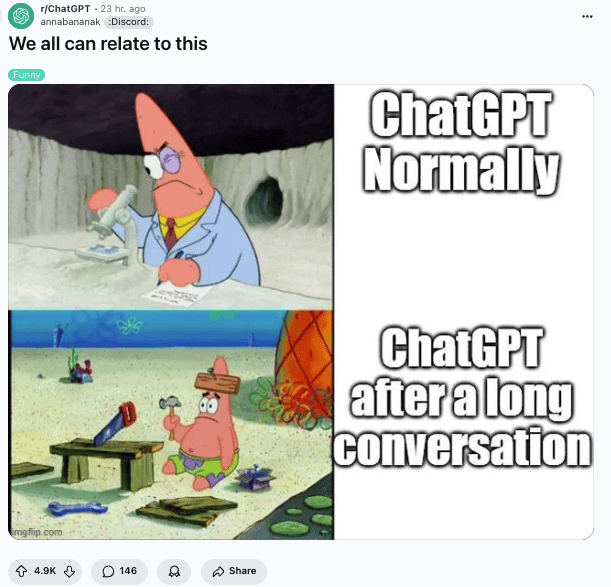

A Cat's Commentary.
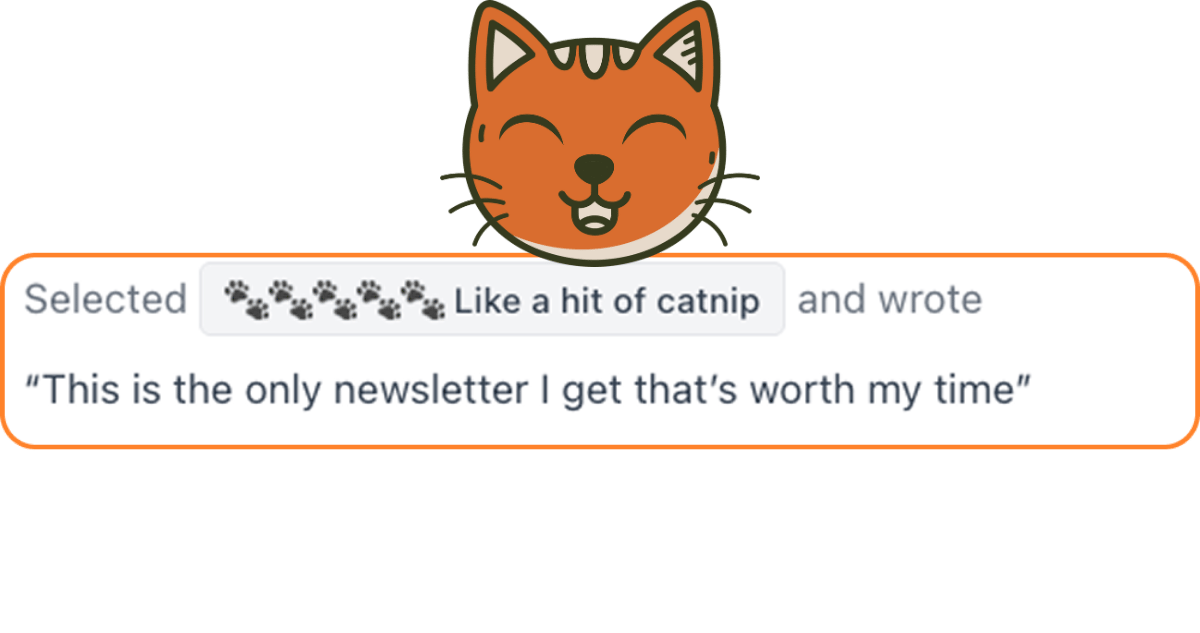


.jpg)

.jpg)


